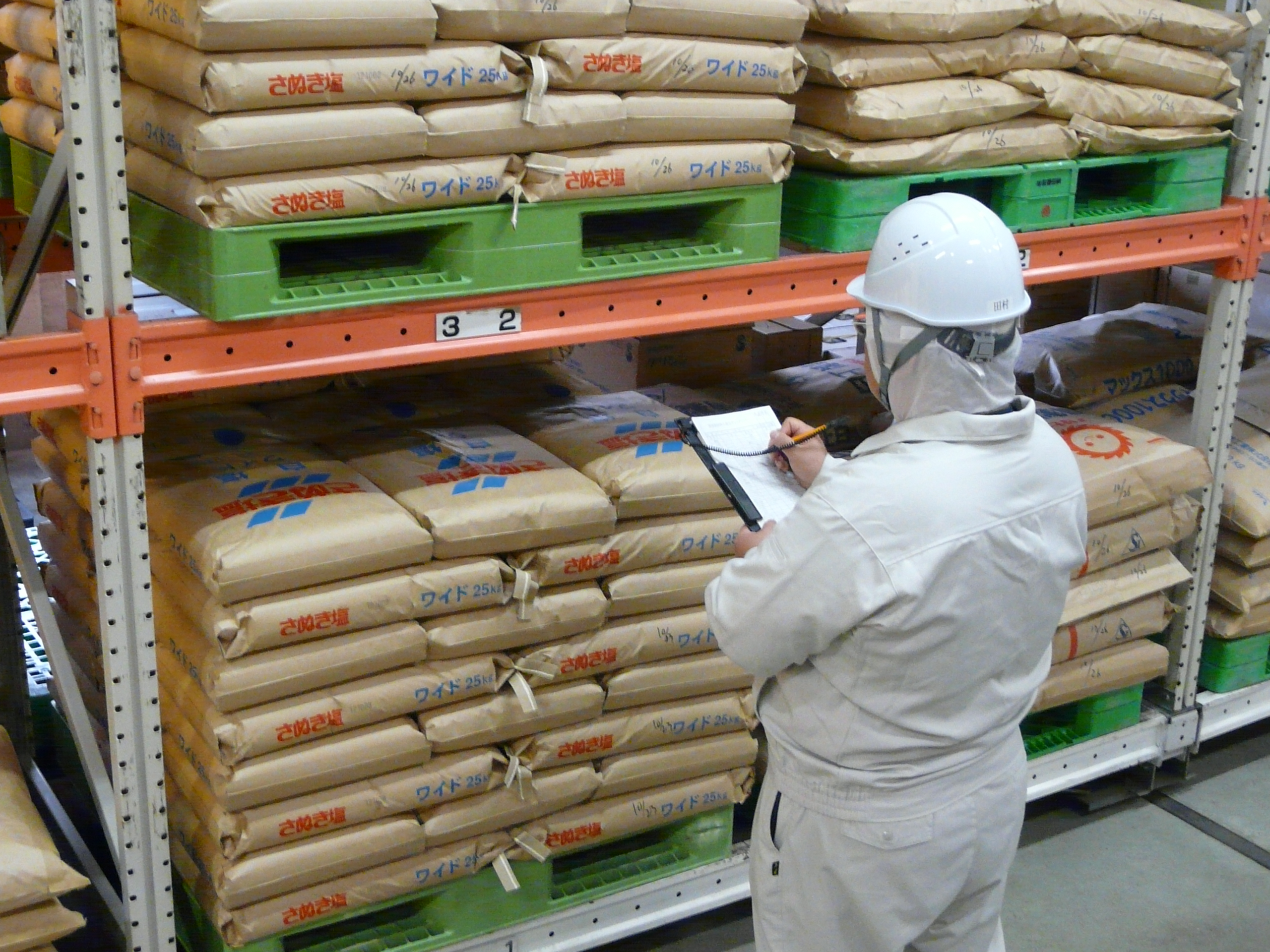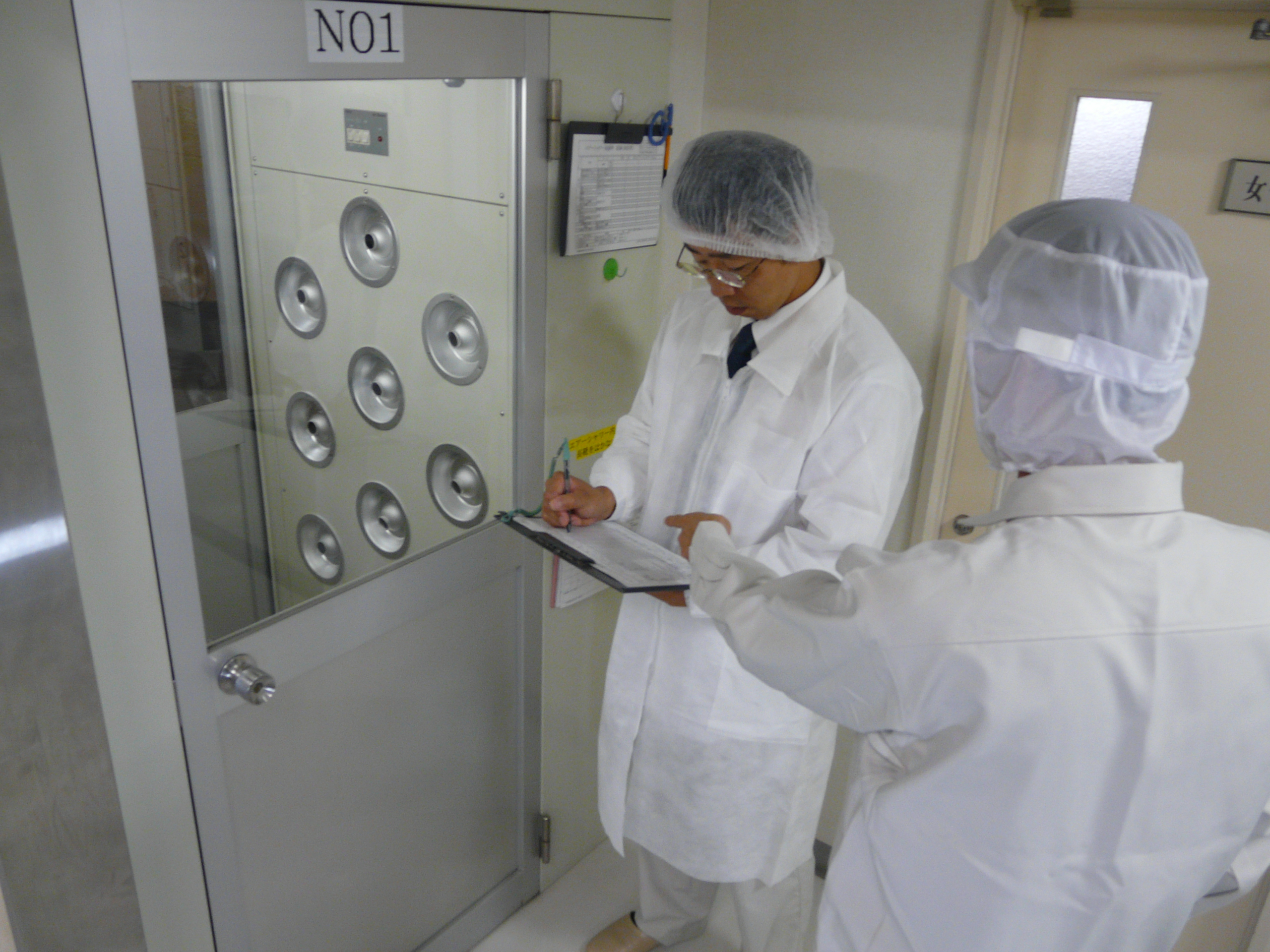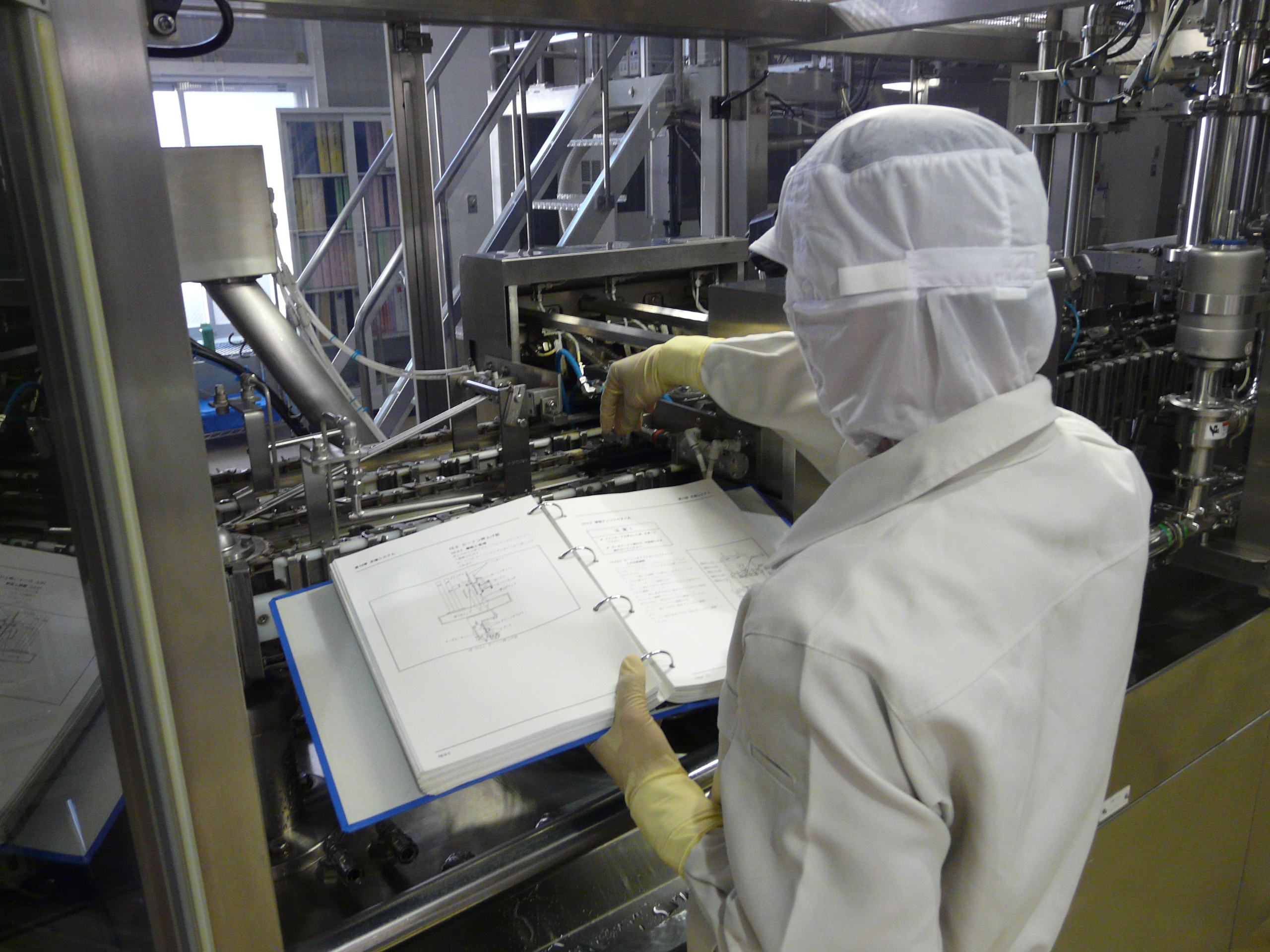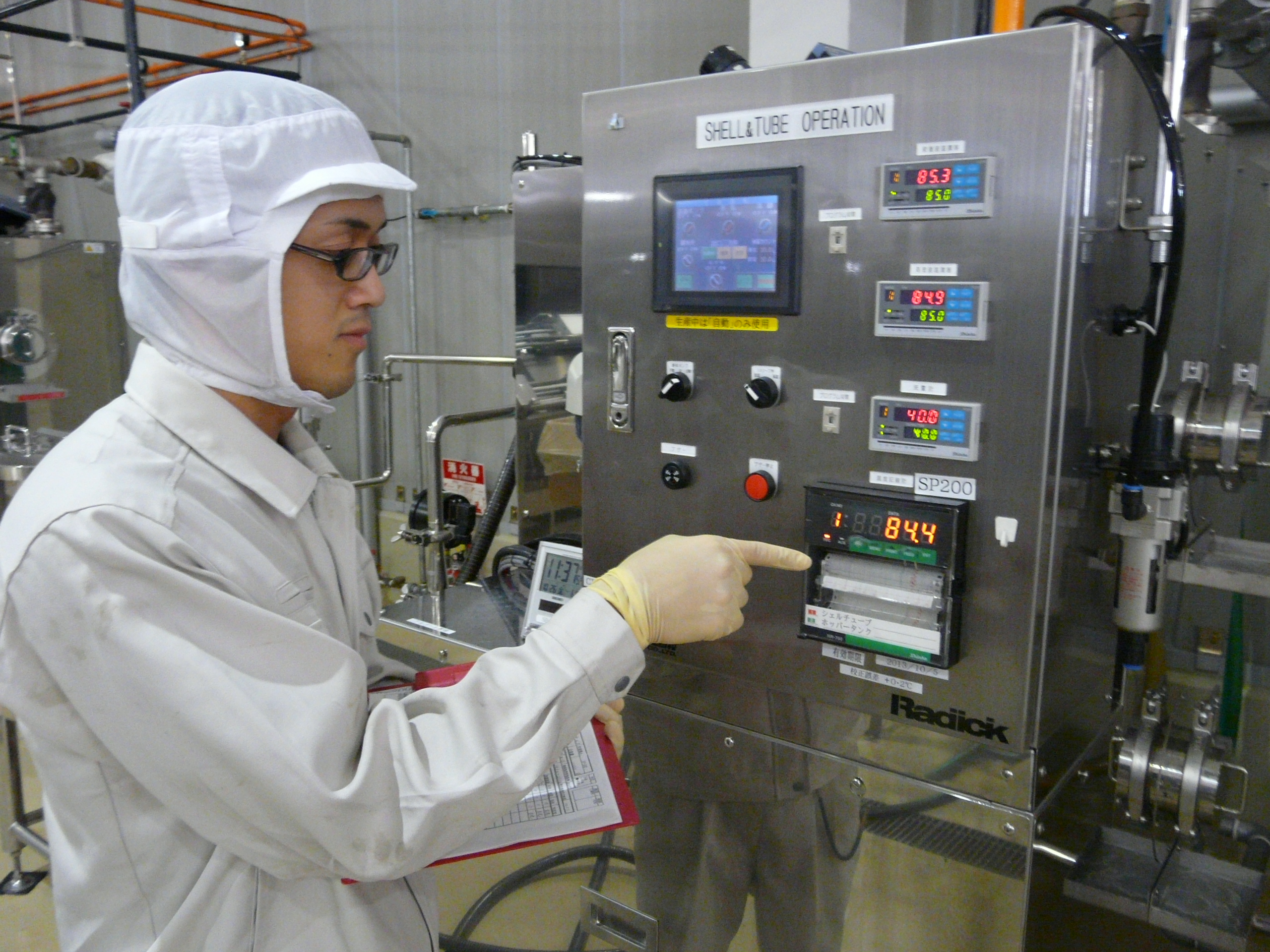Kamada Soy Sauce Inc. has been making soy sauce since 1789 in Sakaide (Kagawa prefecture, Japan), an area well known for salt production. In the more than 230 years since its founding, Kamada Soy Sauce has been committed to producing the highest quality soy sauce. We have also gained public confidence by serving the community in many ways. We have consistenly responded quickly to changes in the food culture and have steadily produced the quality-first products that the times have called for.
Kamada Soy Sauce Inc. manufactures carton-packaged products. The company has obtained ISO 9001 certification to ensure that the improvement of quality and enhancement of customer satisfaction is ongoing. This is an international quality management standard that covers processes, from design development to manufacturing and sales.
(Quality at Kamada Soy Sauce Inc.)
Date of certification: March 1, 2002
Certification body: Japan Quality Assurance Organization (JQA)
Certified business establishments: Head Office Plant and Minato Plant
Our Minato Plant in Sakaide that primarily manufactures carton-packaged products had obtained HACCP certification - audit by Japan Fisheries Association - on February 7, 2008, continuing to ensure the product safety.

We ensure that there are no quality abnormalities and keep records of each step of the production process from the raw materials acceptance to the final product release. If any products with abnormalities were found, they are to be removed from the process immediately.

Traceability is also maintained through records that allows us to identify the raw materials and products delivered to the customers. Traceability drills are performed regularly to make sure that necessary records can be retrieved quickly and correctly.

From the perspective of food defense* preparedness, records are also kept of every person who enters the processing area. This is the case for not only employees but also visitors, including engineers who carry out machinery maintenance and repairs. (*Food defense: measures to prevent contamination of foods)

Inspection and sanitation management manuals have been created to maintain and record the state and preservation of equipment and machinery.
Inspections are carried out at each required point of the manufacturing process to make sure that there are no problems in quality or process control.

Regarding the Safety of Kamada Soy Products from Radiation Contamination
Regarding the Safety of Kamada Soy Sauce Products from the Radiation Contamination
To Our Valued Customers
Kamada Soy Sauce Inc.
Takeo Kamada, President (Representative Director)
Thank you for your continued patronage of Kamada Soy Sauce Inc.
Please find herein a report on the countermeasures being taken by Kamada Soy Sauce Inc. in regards to radiation contamination resulting from the accident at the Fukushima Nuclear Power Plant that hit Japan on March 11, 2011..
Kamada Soy Sauce Inc. has been carrying out voluntary radioactivity inspections since March 21, 2012.
The instrument used for measuring radiation is a model (NaI(Tl) scintillation detector) that conforms to the performance requirements prescribed by the Japanese Ministry of Health, Labour and Welfare (MHLW) in "Method for Testing Radioactive Cesium in Food." Measurements are being carried out by an examiner who has passed the official radiation measurement proficiency test. (The instrument also conforms with the new standards (general foods) implemented on April 1, 2012.)
More than 30 kinds of domestically-produced primary raw materials, such as soy sauce and Katsuobushi (dried bonito), are inspected per accepted lot. Furthermore, the liquid end-product is also inspected by production lot before being filled into the carton. In the case that questions arise in the inspection using the aforementioned scintillation detector, advanced testing is carried out by an external inspection body using a germanium (Ge) semiconductor detector. The permissible level established by Kamada Soy Sauce Inc. for the final product is 2 becquerel per kilogram, which is one-fiftieth the "100 becquerel per kilogram" standard established by the MHLW for general foods. Note that as of March 31, 2024, 34,066 samples have been inspected, and no such radiation has been detected in final products since inspections began.
No voluntary inspections are being carried out in regards to radioactivity inspections of the water used in the manufacturing process. This is because the manufacturing plant is located in Kagawa Prefecture, and the levels of radiation in the air, as announced by the Prefecture, are at normal levels.
As you can see, Kamada Soy Sauce Inc. uses no raw ingredients that may pose a safety hazard on its customers. We will continue carrying out radioactivity inspections going forward.
In regards to radiation, Kamada Soy Sauce Inc. will comply appropriately with related notices made by the government agencies concerned. We will also strive to collect related information. We look forward to your continued patronage of our products.
We strive to gather allergy-related information involving all raw materials used.
We will disclose the information as it becomes available.
The content on this page is intended for allergens as defined by The United States Food and Drug Administration (FDA).
Currently, we only note allergens that can be investigated.
Please contact us for more information.
Milk, Eggs, Crustacean shellfish, Tree nuts, Peanuts, Wheat, Soybeans, Sesame, Fish
| Products | Allergenic Labeling |
|---|---|
| Dashi Soy Sauce | Wheat, Soybeans, Fish(Mackerel, Tuna) |
| Less Sodium Dashi Soy Sauce | Wheat, Soybeans, Fish(Mackerel, Tuna) |
| Salmon Dashi Soy Sauce | Wheat, Soybeans, Fish(Salmon, Tuna) |
| Vegan Dashi Soy Sauce | Wheat, Soybeans |
| Classic Dashi Soy Sauce | Wheat, Soybeans, Fish(Salmon, Tuna) |
| Classic Yuzu Soy Sauce | Wheat, Soybeans, Fish(Tuna) |
| Dashi Ponzu Soy Sauce | Wheat, Soybeans, Fish(Mackerel, Tuna) |
| Ponzu Soy Sauce | Wheat, Soybeans |
| Salad Dressing | Wheat, Soybeans, Fish(Mackerel, Tuna) |
| Teriyaki Soy Sauce | Wheat, Soybeans, Fish(Mackerel, Tuna) |
| Nizakana Soy Sauce | Wheat, Soybeans, Fish(Salmon, Mackerel, Tuna) |
| Dashi Soup Base | Wheat, Soybeans, Fish(Mackerel, Tuna, Herring) |
| Garlic Dashi Soy Sauce | Wheat, Soybeans, Sesame, Fish(Tuna) |
| Shellfish Soup Base | Wheat, Soybeans, Fish(Mackerel, Tuna) |
| Sashimi Soy Sauce | Wheat, Soybeans |
| Soup Base | Wheat, Soybeans, Fish(Salmon, Mackerel, Tuna) |
| Soba Soup Base | Wheat, Soybeans, Fish(Salmon, Mackerel, Tuna) |
| Sweet Udon Soy Sauce | Wheat, Soybeans, Fish(Salmon, Tuna, Anchovy) |
| Iriko Dashi Vinegar | Fish(Anchovy) |
| Soy Sauce | Wheat, Soybeans |
| Usukuchi Soy Sauce | Wheat, Soybeans |
| Udon Soup Base | Wheat, Soybeans, Fish(Mackerel, Tuna, Anchovy, Herring) |
| Dashi Chuno Sauce | Wheat, Soybeans, Fish(Tuna, Anchovy) |
| Hokkaido Kome Koji Miso | Soybeans |
| Kamada Katsuo Dashi Packs | Fish(Salmon, Mackerel, Tuna, Anchovy, Flyingfish, Scad) |
| Kamada Iriko Dashi Packs | Fish(Anchovy) |
| Shio Kombu | Wheat, Soybeans, Fish(Mackerel, Tuna) |
| Chirimen Sansho | Wheat, Soybeans, Fish(Mackerel, Tuna) |
| Chili Dashi Soy Sauce | Wheat, Soybeans, Fish(Tuna) |
| Shodoshima Somen noodles | Wheat, Sesame |
| Tokachi Soba noodles | Wheat |
| Sanuki Udon noodles | Wheat |
*Note that the content of the product you purchase and the content of the products listed on this website may differ slightly due to ongoing improvements. Please read the ingredients noted on the package carefully before consuming.
*Please contact us for current allergen information.